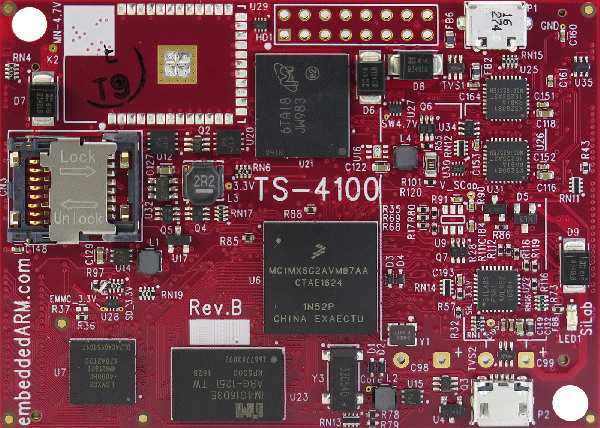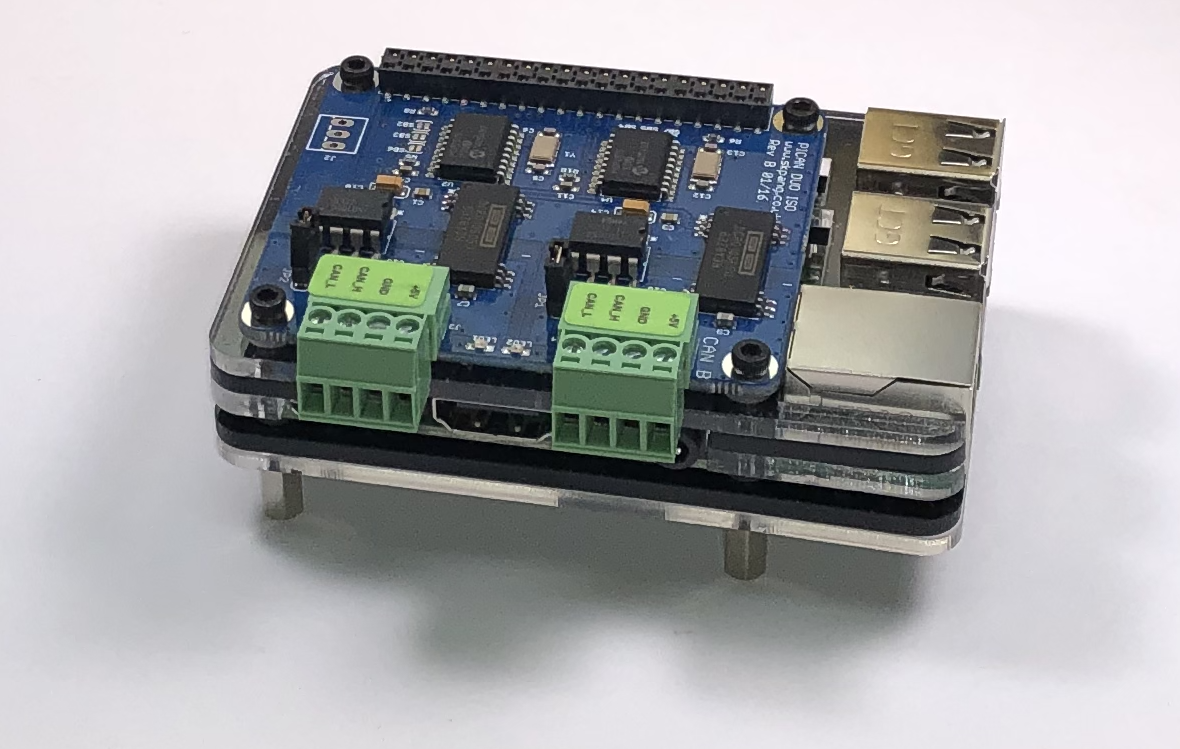Recent Posts
IoT-Ready Computer-On-Module With Two CAN Bus Ports And Linux Operating System
Posted by on
The TS-4100 by Technologic Systems is a low power, high-performance Computer-on-Module powered by the NXP i.MX 6UltraLite ARM® Cortex®-A7 core that is running at up to 695 MHz clock frequency. The standard power consumption is approximately 300 mW with up to 1 GB RAM, 4 GB eMMC flash, 32 bit programmable off-load engine, microSD with UHS support (up to 60 MB/s), WiFi and Bluetooth module with built-in antenna, and various industry-standard interfaces. It is well suitable for applications with stringent power requirements, yet require a high-performance device with wireless connectivity, like Industrial Internet of Things (IIoT) gateways, medical, automotive, industrial automation, smart energy, and many more.
The TS-4100 is Technologic Systems' first CoM module that can also operate as a standalone micro Single Board Computer (SBC). When powered through the on-board micro USB port, the TS-4100 does not need a baseboard to work.
Hardware Features
- Processor – NXP i.MX 6UL (ARM Cortex-A7 @ 695MHz)
- Memory – 4GB MLC eMMC which can be configured to a more robust 2GB SLC eMMC
- RAM – Up to 1GB
- Storage – MicroSD slot supporting Ultra High Speed bus interface
- Wireless – 802.11 b/g/n; Bluetooth BLE
- On-board USB OTG Micro-USB connector
- On-board USB console output with Micro-USB connector
- Networking – 2x 10/100 Ethernet ports available on CoM interface
- HMI I/O available on CoM interface:
- Other I/O available on CoM interface
- 2x USB OTG Ports
- SPI Bus
- I2C Bus
- RS232 for Linux console
- 2x RS232
- 2x CAN Bus
- 5 VDC input Power – via USB or via Baseboard
- Typical Power Consumption 1.0 W
- Fanless Temperature Range -40 °C to 85 °C
- Dimensions – 75mm x 55mm
Raspberry Pi 3 B+ System With Dual Isolated CAN Bus Interface
Our Raspberry Pi 3 System With CAN Bus Interface (PiCAN2) comes with a pre-installedRaspbian operating system.
The PiCAN2 DUO ISO board provides two independent isolated CAN-Bus channels for the Raspberry Pi. It uses the Microchip MCP2515 CAN controller in combination with the Texas Instruments ISO1050 isolated CAN transceiver. Connections are made via 4 way screw terminal plugs.
There is an easy-to-install SocketCAN driver, and programming can be accomplished in C or Python.
 Loading... Please wait...
Loading... Please wait...


